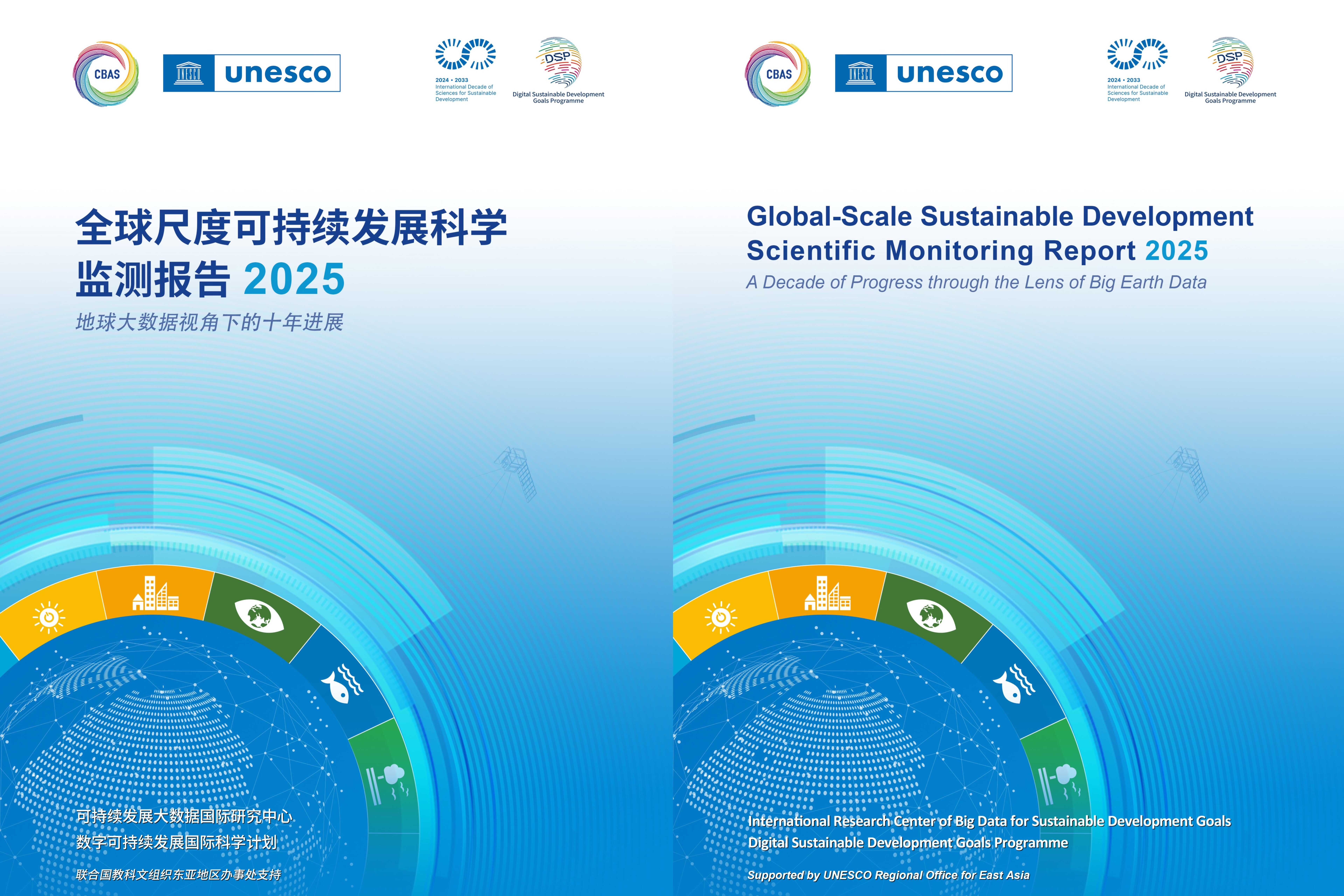Breaking Limits of Traditional Data: Big Earth Data Provides Precise Diagnosis of a Decade of Global Sustainable Development
Global progress toward the United Nations Sustainable Development Goals (SDGs) has stalled and, in many areas, regressed over the past decade, according to a new report released on October 27, 2025, at the World Science and Technology Development Forum. The Global-Scale Sustainable Development Scientific Monitoring Report (2025): A Decade of Progress through the Lens of Big Earth Data provides a detailed global assessment, revealing that only one of 18 SDG indicators was on track since 2015.
The report, led by the International Research Center of Big Data for Sustainable Development Goals (CBAS), unites experts from 21 countries and more than 40 research institutions and international organizations. Using innovative methods and global-scale, high-resolution datasets, the team conducted a comprehensive "scientific check-up" on the planet's progress toward sustainable development.
The findings are both sobering and urgent. While wetland conservation (SDG 6.6.1) maintained a global "no net loss" status between 2015 and 2022, 11 indicators face significant or serious challenges, and 8 show clear regression—including those related to food security, water resources, marine ecosystems, biodiversity, and climate stability. The report warns that mounting systemic risks threaten global sustainability, underscoring the need for coordinated international action.
Behind these findings lies a methodological breakthrough. By integrating satellite remote sensing, ground-based sensor networks, and social and statistical data, CBAS and its partners have built a Big Earth Data–driven framework for SDG monitoring. This framework uses globally consistent, long-term, and quality-assured data to assess 18 indicators with high spatial variability. Advanced statistical approaches—including the Theil–Sen median trend estimator and Mann–Kendall significance testing—ensure that assessments are both rigorous and comparable across countries and time periods.
At the national scale, the report highlights countries making notable contributions to global sustainability. China, Canada, Brazil, and Norway emerge as top positive contributors, particularly in ecological protection and sustainable resource management. China's average contribution across 15 indicators reached 5.84%—the highest globally—reflecting its leadership and commitment to sustainable development.
To accelerate progress in the next five years, the report calls for three priority actions. Countries must first close data gaps through the efforts such as the Technology Facilitation Mechanism (TFM) and the Digital Sustainable Development Goals Programme (DSP) to ensure data completeness and timeliness. They should also deepen cross-SDG analyses, especially in food–water–energy systems, to strengthen synergies and reduce inefficiencies. Finally, policy and resource allocation should be optimized based on spatially differentiated assessments, enhancing inclusive governance and reducing regional disparities.
"This report demonstrates how new technologies—particularly Earth observation and integrated big data analytics—can overcome the limitations of incomplete and patchy data, a hallmark of traditional monitoring systems, by providing globally comparable spatial monitoring capabilities," said Prof. Quarraisha Abdool Karim, President of the World Academy of Sciences.
CAS Academician GUO Huadong, Director-General of CBAS, emphasized that "as the latest outcome of DSP under the UNESCO's International Decade of Sciences for Sustainable Development, this report and its assessment framework and data are openly shared worldwide, providing a scientific foundation for interdisciplinary SDG research and evidence-based action."
The Global-Scale Sustainable Development Scientific Monitoring Report (2025) is available for download on the CBAS website.

Bilingual cover of the Report. (Image by AIR)



News & Events